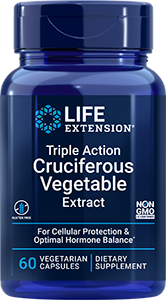- Science & Research
- Science News
- Newsletter
- 2011
- October 28

Newsletter
Newsletter
Supplementing a low fat diet with fish oil reduces prostate cancer cell growth
Supplementing a low fat diet with fish oil reduces prostate cancer cell growth
Friday, October 28, 2011. In an article published online on October 25, 2011 in the journal Cancer Prevention Research, clinical professor of urology William Aronson of the University of California Los Angeles Jonsson Comprehensive Cancer Center and his associates report a benefit for a low fat diet supplemented with fish oil in retarding the growth of prostate cancer. Fish oil is high in the omega-3 fatty acids eicosapentaenoic acid and docosahexaenoic acid that help combat inflammation, which is a factor in many cancers. The current trial enrolled prostate cancer patients scheduled for surgical removal of the prostate gland. Four to six weeks prior to surgery, the men were divided to receive a diet in which 15 percent of calories were provided by fat, supplemented with five grams of fish oil per day, or a high-fat Western diet. Men who received the fish oil capsules had higher cell membrane levels of omega-3 fatty acids and reduced omega-6 fatty acids from corn oil at the end of the treatment period. Examination of the excised prostate glands found a reduced rate of cell proliferation in the fish oil-supplemented group as evidenced by staining with an antibody against a protein involved in cell growth known as Ki-67. Additionally, blood drawn from the treatment group reduced the growth of prostate cancer cells in vitro in comparison with blood obtained from men who did not receive fish oil. "The percentage of prostate cancer cells that stained for Ki-67 was determined by the pathologist, and this gave us an objective measurement of the percentage of cells that were actively dividing and therefore more aggressive," Dr Aronson explained. "Previous studies found that patients with higher levels of Ki-67 in their prostate cancer tissue were more likely to have their prostate cancer progress to advanced stages, and were more likely to die from their prostate cancer. Thus, we are extremely encouraged by our findings that a low-fat diet with fish oil lowered Ki-67 levels and may have the potential to slow the progression of prostate cancer." "The finding that the low-fat, fish oil diet reduced the number of rapidly dividing cells in the prostate cancer tissue is important because the rate at which the cells are dividing can be predictive of future cancer progression," he noted. "The lower the rate of proliferation, the lesser the chances that the cancer will spread outside the prostate, where it is much harder to treat." "The key to this study was having the meals prepared and delivered to the study participants," he added. "This resulted in a very high rate of compliance, making the study very well controlled." "You truly are what you eat," Dr Aronson remarked. "Based on our animal studies, we were hopeful that we would see the same effects in humans. We are extremely pleased about our findings, which suggest that by altering the diet, we may favorably affect the biology of prostate cancer." | ||||||||||||||||
 | ||||||||||||||||
| ||||||||||||||||
| ||||||||||||||||
 | ||||||||||||||||
| ||||||||||||||||
| ||||||||||||||||
The latest news on aging, nutrition, and vitamins
Lab
Testing
How Life Extension lab testing works










